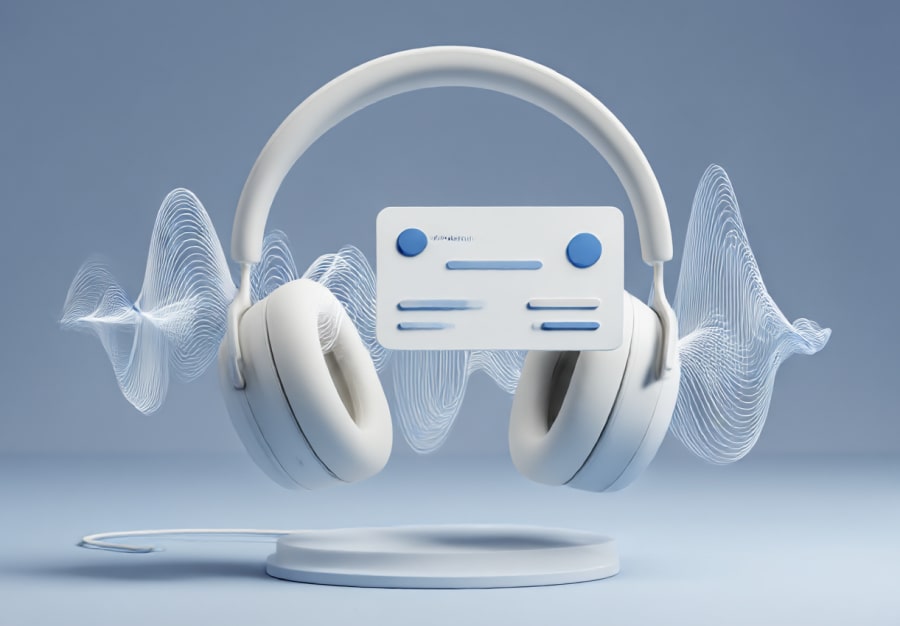AudioShelf: Turn Any Book or Idea Into Your Personal Audio Learning Experience
We live in a world where everyone wants to learn more — but no one feels like they have the time. Between work, commuting, notifications, and deadlines, reading often gets pushed to “whenever I have a moment,” which usually means never.
That’s exactly why AudioShelf exists. It’s an AI-powered tool that turns any book summary, chapter, idea, or set of notes into a clear, personalized audio version you can listen to anywhere.
Not an audiobook.
Not a podcast.
Not a generic text-to-speech file.
AudioShelf creates your own personal audio insight guide — something designed for learning, not for entertainment. This article will show you how to get the most out of AudioShelf and how to make listening the most effortless and productive part of your learning routine.
Why Traditional Listening Didn’t Solve the Reading Problem
People usually think the solution to “I can’t finish books” is:
-
Listen to audiobooks
-
Listen while multitasking
-
Use faster playback speeds
But here’s the truth:
Audiobooks are long.
10–20 hours per book is not efficient.
They’re narrative, not strategic.
They read the entire book, even parts you don’t need.
They’re built for entertainment.
Not for retention or insight extraction.
You can’t review or summarize easily.
You finish listening — but forget the key points.
AudioShelf removes everything unnecessary and turns content into something optimized for learning.
What AudioShelf Actually Does
When you paste a book summary, chapter notes, or an idea you want to revisit, AudioShelf converts it into:
-
Clear spoken insights
-
A structured audio summary
-
Your own learning voice
-
A custom “highlight reel” of key ideas
It’s built for one purpose:
To let your ears do the learning while your mind stays focused.
That means you can now learn while:
-
Walking
-
Cooking
-
Commuting
-
Exercising
-
Cleaning
-
Traveling
-
Getting ready in the morning
Anywhere your hands are busy but your mind is open.
How to Use AudioShelf
Step 1 — Input the Text You Want to Learn
This could be:
-
A book summary
-
A ReadSmart output
-
Chapter highlights
-
Notes you wrote
-
A concept you want to memorize
-
Key ideas from a meeting
-
A topic you’re researching
Step 2 — AudioShelf Creates a Clean, Personal Audio File
You get:
-
A structured spoken explanation
-
Natural pacing
-
Easy-to-understand segmentation
-
A format built for retention
Step 3 — Listen Anywhere
Use it for:
-
Review
-
Habit stacking
-
Daily micro-learning
-
Reinforcement
-
Memorization
-
Creative brainstorming
AudioShelf is not about replacing reading.
It’s about making learning available in every moment where your eyes can’t focus — but your ears can.
A Real Example: “Thinking, Fast and Slow” Using AudioShelf
Here’s what an AudioShelf version of Thinking, Fast and Slow looks like:
Core Explanation (Spoken)
The mind uses two systems — fast intuition and slow reasoning. Many of our decisions come from automatic thinking, not rational analysis.
Key Ideas (Spoken)
-
System 1 (fast) vs. System 2 (slow)
-
Biases and heuristics
-
The illusion of understanding
-
Overconfidence
-
Prospect theory
Practical Applications (Spoken)
-
Pause before making high-stakes decisions
-
Identify emotional triggers
-
Ask slow-thinking questions
-
Challenge “easy answers”
Long-Term Lessons (Spoken)
-
Your intuitive brain is powerful but unreliable
-
Awareness reduces bias
-
Good thinking requires effort
Listening to this in five minutes gives you the clarity the full book takes hours to absorb.
When Should You Use AudioShelf?
AudioShelf is ideal when you want to:
✔ Learn while moving
Perfect for commutes, gym time, or chores.
✔ Reinforce knowledge quickly
Use it to review your favorite books weekly.
✔ Turn learning into a habit
Stack it with daily routines.
✔ Prepare for meetings or discussions
Convert notes into an audio refresher.
✔ Repurpose book insights into long-term memory
Audio is one of the best reinforcement tools.
✔ Create your own personal “learning playlist”
Build a library of insights you can revisit anytime.
Why AudioShelf Works Better Than Traditional Audiobooks
Traditional audiobooks:
-
Too long
-
Too slow
-
Narrative-driven
-
Hard to review
-
Built for entertainment
AudioShelf:
-
Short, sharp, and structured
-
Designed for retention
-
Based on insight, not storytelling
-
Easy to replay
-
Personalized
It’s closer to having a personal audio coach than listening to a book.
How I Personally Use AudioShelf
I use AudioShelf in three specific ways:
1. Learning While Moving
My morning walk = 15 minutes of focused audio learning.
2. Reviewing Books I’ve Already Read
I convert my ReadSmart outputs into audio to reinforce key ideas.
3. Preparing for Content Creation
Before writing an article, I listen to the core ideas of a book to refresh my thinking.
It’s become one of the simplest ways to expand my knowledge without adding more reading hours.

